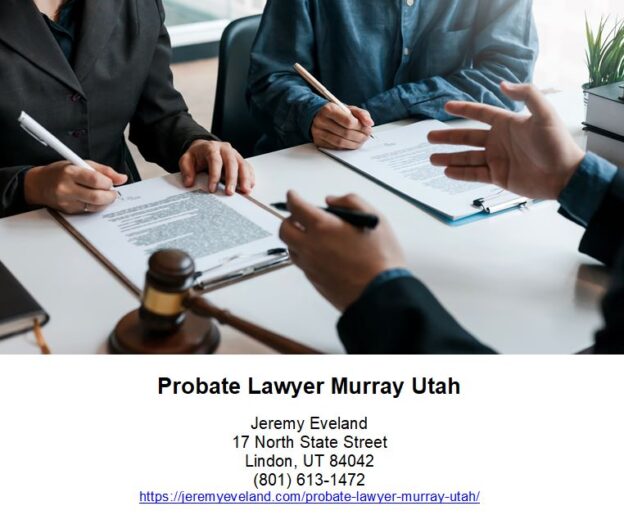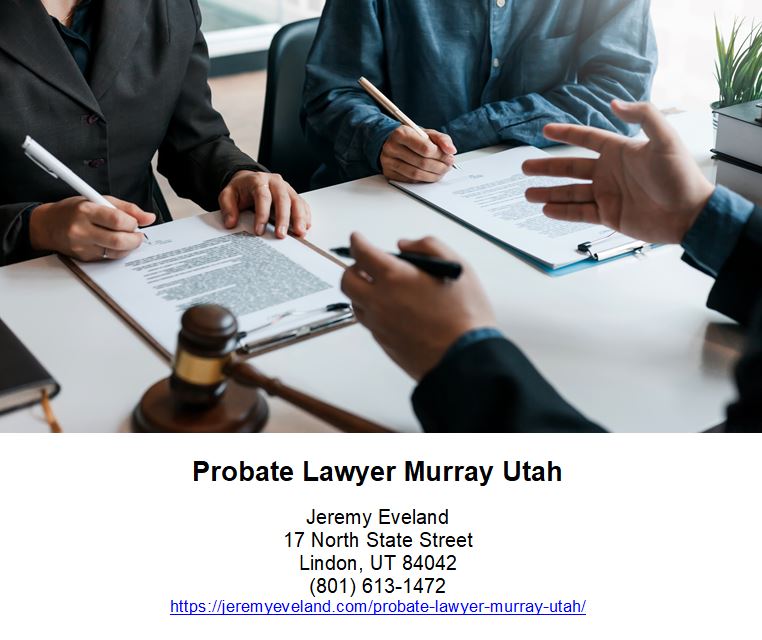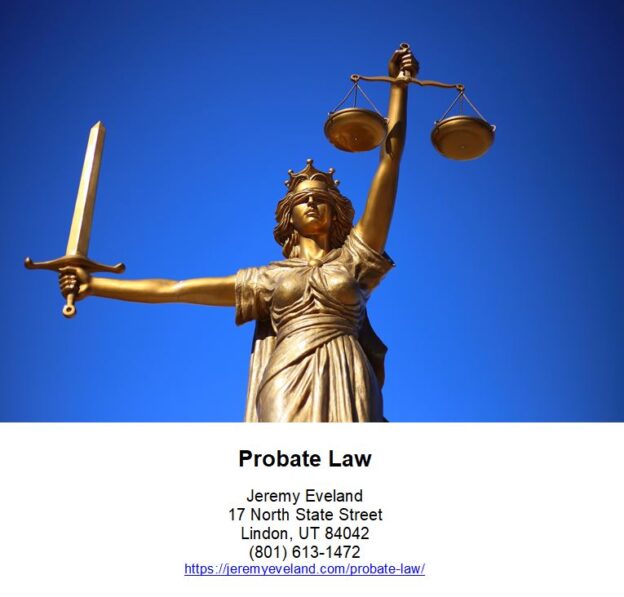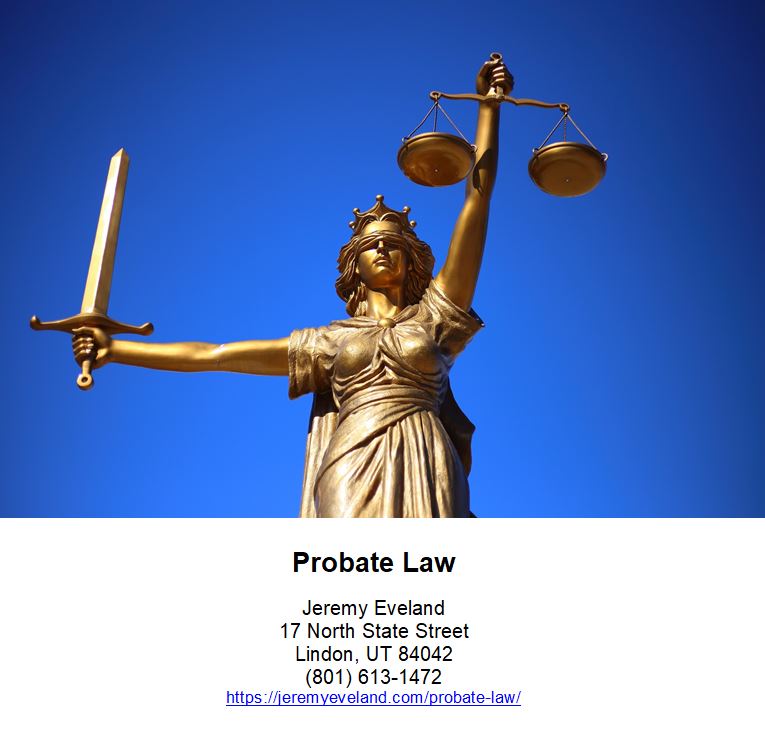-
Attorney at Law
- Introduction
- The Benefits of Working with a Business Succession Lawyer in Holladay, Utah for Estate Planning and Tax Planning
- What to Look for in a Business Succession Lawyer in Holladay, Utah
- How to Prepare for a Business Succession Planning Consultation in Holladay, Utah
- Understanding the Different Types of Business Succession Planning in Holladay, Utah
- The Benefits of Working with a Business Succession Lawyer in Holladay, Utah
- What to Expect from a Business Succession Lawyer in Holladay, Utah
- How to Choose the Right Business Succession Lawyer in Holladay, Utah
- Why You Should Hire Jeremy Eveland To Help You With Succession Planning
“Secure Your Business’s Future with Business Succession Lawyer Holladay Utah”
Introduction
Business Succession Lawyer Holladay Utah is a law firm that specializes in helping business owners and their families plan for the future of their business. Our team of experienced attorneys provides comprehensive legal advice and services to help business owners and their families plan for the future of their business. We understand the complexities of business succession planning and are committed to helping our clients achieve their goals. Our attorneys have extensive experience in business succession planning, estate planning, and tax planning. We are dedicated to providing our clients with the highest quality legal advice and services to ensure their business succession plans are successful. We strive to provide our clients with the best possible legal advice and services to ensure their business succession plans are successful.
The Benefits of Working with a Business Succession Lawyer in Holladay, Utah for Estate Planning and Tax Planning
When it comes to estate planning and tax planning, working with a business succession lawyer in Holladay, Utah can be extremely beneficial. A business succession lawyer can help you create a comprehensive plan that will ensure your assets are distributed according to your wishes and that your taxes are minimized. Here are some of the benefits of working with a business succession lawyer in Holladay, Utah for estate planning and tax planning.
1. Comprehensive Planning: A business succession lawyer in Holladay, Utah can help you create a comprehensive plan that takes into account all of your assets, liabilities, and goals. This plan will ensure that your assets are distributed according to your wishes and that your taxes are minimized.
2. Tax Planning: A business succession lawyer in Holladay, Utah can help you minimize your taxes by taking advantage of available deductions and credits. They can also help you structure your estate in a way that will minimize your tax burden.
3. Asset Protection: A business succession lawyer in Holladay, Utah can help you protect your assets from creditors and other potential liabilities. They can also help you create trusts and other legal entities that will protect your assets from creditors and other potential liabilities.
4. Estate Planning: A business succession lawyer in Holladay, Utah can help you create a comprehensive estate plan that will ensure your assets are distributed according to your wishes. They can also help you create trusts and other legal entities that will protect your assets from creditors and other potential liabilities.
5. Expert Advice: A business succession lawyer in Holladay, Utah can provide you with expert advice on estate planning and tax planning. They can help you understand the complexities of estate planning and tax planning and provide you with the best advice for your situation.
Working with a business succession lawyer in Holladay, Utah for estate planning and tax planning can be extremely beneficial. A business succession lawyer can help you create a comprehensive plan that will ensure your assets are distributed according to your wishes and that your taxes are minimized. They can also provide you with expert advice on estate planning and tax planning and help you protect your assets from creditors and other potential liabilities.
What to Look for in a Business Succession Lawyer in Holladay, Utah
When searching for a business succession lawyer in Holladay, Utah, it is important to consider a few key factors. First, it is important to find a lawyer who is experienced in business succession law. This means that the lawyer should have a thorough understanding of the legal aspects of business succession, including the transfer of ownership, the division of assets, and the taxation of the transaction. Additionally, the lawyer should have experience in the local laws and regulations that may affect the succession process.
Second, it is important to find a lawyer who is knowledgeable about the specific needs of the business. This includes understanding the business’s goals and objectives, as well as the financial and legal implications of the succession process. The lawyer should be able to provide advice on the best way to structure the succession process to ensure that the business’s goals are met.
Finally, it is important to find a lawyer who is willing to work with the business owners to ensure that the succession process is successful. The lawyer should be able to provide guidance and support throughout the process, as well as provide advice on any potential legal issues that may arise. Additionally, the lawyer should be able to provide advice on how to protect the business’s assets and ensure that the succession process is completed in a timely manner.
By considering these factors, business owners in Holladay, Utah can find a business succession lawyer who is experienced, knowledgeable, and willing to work with them to ensure that the succession process is successful.
How to Prepare for a Business Succession Planning Consultation in Holladay, Utah
Preparing for a business succession planning consultation in Holladay, Utah is an important step in ensuring the future success of your business. Here are some tips to help you get the most out of your consultation:
1. Gather all relevant documents. Before your consultation, make sure to gather all relevant documents, such as financial statements, tax returns, and legal documents. This will help your consultant understand the current state of your business and provide the best advice for your succession plan.
2. Identify your goals. Before your consultation, take some time to think about your goals for the business. What do you want to achieve with your succession plan? Are you looking to pass the business on to a family member or sell it to an outside party? Knowing your goals will help your consultant create a plan that meets your needs.
3. Research potential consultants. Before you choose a consultant, do some research to make sure they have the experience and qualifications to help you with your succession plan. Ask for references and read reviews to make sure they are the right fit for your business.
4. Prepare questions. Before your consultation, make a list of questions you want to ask your consultant. This will help you get the most out of your consultation and ensure that all of your concerns are addressed.
By following these tips, you can ensure that your business succession planning consultation in Holladay, Utah is a success. Good luck!
Understanding the Different Types of Business Succession Planning in Holladay, Utah
Business succession planning is an important part of any business in Holladay, Utah. It is the process of preparing for the transfer of ownership and management of a business from one generation to the next. It is important to understand the different types of business succession planning in order to ensure the continuity and success of the business.
The first type of business succession planning is internal succession planning. This type of planning involves the transfer of ownership and management of the business from one generation to the next within the same family. This type of planning is important to ensure that the business remains in the family and that the family’s legacy is preserved.
The second type of business succession planning is external succession planning. This type of planning involves the transfer of ownership and management of the business from one generation to the next outside of the family. This type of planning is important to ensure that the business remains viable and that the business’s future is secure.
The third type of business succession planning is strategic succession planning. This type of planning involves the transfer of ownership and management of the business from one generation to the next with the goal of achieving a specific strategic goal. This type of planning is important to ensure that the business remains competitive and that the business’s future is secure.
Finally, the fourth type of business succession planning is financial succession planning. This type of planning involves the transfer of ownership and management of the business from one generation to the next with the goal of achieving a specific financial goal. This type of planning is important to ensure that the business remains financially sound and that the business’s future is secure.
Business succession planning is an important part of any business in Holladay, Utah. It is important to understand the different types of business succession planning in order to ensure the continuity and success of the business. By understanding the different types of business succession planning, business owners in Holladay, Utah can ensure that their business remains viable and that their legacy is preserved.
The Benefits of Working with a Business Succession Lawyer in Holladay, Utah
When it comes to business succession planning, it is important to work with a qualified business succession lawyer in Holladay, Utah. A business succession lawyer can provide invaluable assistance in helping you to plan for the future of your business. Here are some of the benefits of working with a business succession lawyer in Holladay, Utah:
1. Expertise: A business succession lawyer in Holladay, Utah has the expertise and experience to help you navigate the complexities of business succession planning. They can provide advice on the best strategies for transferring ownership of your business, as well as helping you to understand the legal implications of your decisions.
2. Tax Planning: A business succession lawyer in Holladay, Utah can help you to minimize the tax burden associated with transferring ownership of your business. They can provide advice on the best strategies for minimizing taxes, as well as helping you to understand the tax implications of your decisions.
3. Asset Protection: A business succession lawyer in Holladay, Utah can help you to protect your assets from creditors and other potential liabilities. They can provide advice on the best strategies for protecting your assets, as well as helping you to understand the legal implications of your decisions.
4. Estate Planning: A business succession lawyer in Holladay, Utah can help you to plan for the future of your business. They can provide advice on the best strategies for transferring ownership of your business, as well as helping you to understand the legal implications of your decisions.
5. Negotiation: A business succession lawyer in Holladay, Utah can help you to negotiate the terms of any business succession agreement. They can provide advice on the best strategies for negotiating the terms of the agreement, as well as helping you to understand the legal implications of your decisions.
By working with a qualified business succession lawyer in Holladay, Utah, you can ensure that your business succession plan is properly structured and executed. This will help to ensure that your business is protected and that your assets are properly managed. A business succession lawyer in Holladay, Utah can provide invaluable assistance in helping you to plan for the future of your business.
What to Expect from a Business Succession Lawyer in Holladay, Utah
A business succession lawyer in Holladay, Utah can provide invaluable assistance to business owners who are looking to transition their business to the next generation. A business succession lawyer can help business owners plan for the future of their business by providing legal advice and guidance on the best way to transfer ownership and assets.
When working with a business succession lawyer, business owners can expect to receive comprehensive legal advice on the various options available to them. This includes advice on the best way to transfer ownership, such as through a sale, gift, or trust. The lawyer can also provide guidance on the tax implications of each option, as well as the legal requirements for transferring ownership.
In addition to providing legal advice, a business succession lawyer can also help business owners draft the necessary documents to transfer ownership. This includes drafting a buy-sell agreement, which outlines the terms of the transfer of ownership, as well as any other documents that may be necessary. The lawyer can also help business owners create a succession plan, which outlines the steps that need to be taken to ensure a smooth transition of ownership.
Finally, a business succession lawyer can provide assistance with the negotiation process. This includes helping business owners negotiate the terms of the transfer of ownership, as well as any other agreements that may be necessary. The lawyer can also provide guidance on the best way to handle disputes that may arise during the transfer process.
By working with a business succession lawyer in Holladay, Utah, business owners can ensure that their business is properly transitioned to the next generation. The lawyer can provide invaluable advice and guidance on the best way to transfer ownership and assets, as well as the legal requirements for doing so. With the help of a business succession lawyer, business owners can ensure that their business is properly transitioned and that their legacy is preserved.
How to Choose the Right Business Succession Lawyer in Holladay, Utah
Choosing the right business succession lawyer in Holladay, Utah is an important decision that can have a significant impact on the future of your business. It is important to take the time to research and select a lawyer who is experienced in business succession law and who can provide the best legal advice and representation for your particular situation. Here are some tips to help you choose the right business succession lawyer in Holladay, Utah:
1. Research the lawyer’s experience and qualifications. Make sure the lawyer you are considering has experience in business succession law and is familiar with the laws and regulations in Holladay, Utah. Ask for references and check the lawyer’s credentials to ensure they are qualified to handle your case.
2. Ask for a consultation. Before you hire a lawyer, it is important to meet with them in person to discuss your case and get a better understanding of their experience and qualifications. During the consultation, ask questions about their experience, fees, and any other relevant information.
3. Consider the lawyer’s fees. Business succession lawyers typically charge an hourly rate or a flat fee for their services. Make sure you understand the fee structure before you hire a lawyer and make sure it is within your budget.
4. Check for references. Ask the lawyer for references from past clients and contact them to get an idea of their experience with the lawyer. This will help you get a better understanding of the lawyer’s skills and abilities.
By following these tips, you can ensure that you choose the right business succession lawyer in Holladay, Utah for your particular situation. With the right lawyer, you can rest assured that your business succession plan will be handled properly and that your interests will be protected.
Why You Should Hire Jeremy Eveland To Help You With Succession Planning
Succession planning is an important part of any business, as it ensures that the company will continue to thrive and grow even after the current leadership has retired or moved on. Jeremy Eveland is an experienced succession planning consultant who can help you create a plan that will ensure the future success of your business.
Jeremy has years of experience in the field of succession planning, and he has worked with a variety of businesses, from small family-owned companies to large corporations. He has a deep understanding of the complexities of succession planning and can help you create a plan that is tailored to your specific needs.
Jeremy is an expert in the field of succession planning and can provide you with the guidance and advice you need to create a plan that will ensure the future success of your business. He can help you identify the key personnel who will be responsible for the future of your business, and he can help you develop a plan that will ensure that these individuals are properly trained and prepared to take on the roles they will be expected to fill.
Jeremy is also an experienced negotiator and can help you negotiate the terms of any succession plan you create. He can help you ensure that the plan is fair and equitable for all parties involved, and he can help you ensure that the plan is legally binding and enforceable.
Jeremy is an excellent choice for anyone looking for help with succession planning. He has the experience and expertise to help you create a plan that will ensure the future success of your business, and he can provide you with the guidance and advice you need to ensure that the plan is fair and equitable for all parties involved.
Areas We Serve
We serve individuals and businesses in the following locations:
Salt Lake City Utah
West Valley City Utah
Provo Utah
West Jordan Utah
Orem Utah
Sandy Utah
Ogden Utah
St. George Utah
Layton Utah
South Jordan Utah
Lehi Utah
Millcreek Utah
Taylorsville Utah
Logan Utah
Murray Utah
Draper Utah
Bountiful Utah
Riverton Utah
Herriman Utah
Spanish Fork Utah
Roy Utah
Pleasant Grove Utah
Kearns Utah
Tooele Utah
Cottonwood Heights Utah
Midvale Utah
Springville Utah
Eagle Mountain Utah
Cedar City Utah
Kaysville Utah
Clearfield Utah
Holladay Utah
American Fork Utah
Syracuse Utah
Saratoga Springs Utah
Magna Utah
Washington Utah
South Salt Lake Utah
Farmington Utah
Clinton Utah
North Salt Lake Utah
Payson Utah
North Ogden Utah
Brigham City Utah
Highland Utah
Centerville Utah
Hurricane Utah
South Ogden Utah
Heber Utah
West Haven Utah
Bluffdale Utah
Santaquin Utah
Smithfield Utah
Woods Cross Utah
Grantsville Utah
Lindon Utah
North Logan Utah
West Point Utah
Vernal Utah
Alpine Utah
Cedar Hills Utah
Pleasant View Utah
Mapleton Utah
Stansbury Par Utah
Washington Terrace Utah
Riverdale Utah
Hooper Utah
Tremonton Utah
Ivins Utah
Park City Utah
Price Utah
Hyrum Utah
Summit Park Utah
Salem Utah
Richfield Utah
Santa Clara Utah
Providence Utah
South Weber Utah
Vineyard Utah
Ephraim Utah
Roosevelt Utah
Farr West Utah
Plain City Utah
Nibley Utah
Enoch Utah
Harrisville Utah
Snyderville Utah
Fruit Heights Utah
Nephi Utah
White City Utah
West Bountiful Utah
Sunset Utah
Moab Utah
Midway Utah
Perry Utah
Kanab Utah
Hyde Park Utah
Silver Summit Utah
La Verkin Utah
Morgan Utah
Business Succession Lawyer Holladay Utah Consultation
When you need help with Business Succession Lawyer in Holladay Utah call Jeremy D. Eveland, MBA, JD (801) 613-1472 for a consultation.
Jeremy Eveland
17 North State Street
Lindon UT 84042
(801) 613-1472
Related Posts
Business Succession Lawyer Roy Utah
Business Lawyer St George Utah
Estate Planning Lawyer Ogden Utah
Business Succession Lawyer Pleasant Grove Utah
Market Analysis For Business Antitrust Merger
Are Legal Expenses for Estate Planning Deductible?
Common Legal Issues That Should Involve A Business Lawyer
Corporate Attorney West Valley City Utah
What Does A Corporate Counsel Do?
Can Corporate Counsel Represent A Corporation In Court?
Corporate Attorney Salt Lake City Utah
Business Succession Lawyer Saratoga Springs Utah
Estate Planning Salt Lake City Utah
Business Succession Lawyer Holladay Utah
[geocentric_weather id=”c5c669a6-af1b-40f9-b1db-d3d149a1970b”]
[geocentric_about id=”c5c669a6-af1b-40f9-b1db-d3d149a1970b”]
[geocentric_neighborhoods id=”c5c669a6-af1b-40f9-b1db-d3d149a1970b”]
[geocentric_thingstodo id=”c5c669a6-af1b-40f9-b1db-d3d149a1970b”]
[geocentric_busstops id=”c5c669a6-af1b-40f9-b1db-d3d149a1970b”]
[geocentric_mapembed id=”c5c669a6-af1b-40f9-b1db-d3d149a1970b”]
[geocentric_drivingdirections id=”c5c669a6-af1b-40f9-b1db-d3d149a1970b”]
[geocentric_reviews id=”c5c669a6-af1b-40f9-b1db-d3d149a1970b”]






















